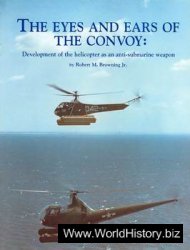The Scopes Trial was the climax of a conservative backlash against the teaching of evolution and featured a legal battle between two of the great orators of the day, lawyer CLARENCE Darrow and populist Democrat William Jennings Bryan. The spread of institutions of higher learning and of mass media had made more visible long-standing divisions in American society. By the early 1920s, differences over such matters as biblical interpretation and the scientific method developed between modernists and cultural conservatives who feared that modernization was undermining traditional American values and institutions. The rift took place at every level, but it had an important impact on EDUCATION and RELIGION. As the scientific method established supremacy in the nation’s classrooms, traditionalists and religious conservatives dug in their heels, often splintering political alliances that had formed in the 1880s and 1890s. In 1925, these divisions came to a head in a test case of antievolution laws. Opponents of Charles Darwin and evolution, led by William Jennings Bryan, had succeeded in passing antievolution laws in 15 states. Supporters of evolution and free speech advocates, including the American Civil Liberties Union (ACLU), looked for a high-profile case to test the constitutionality of these laws.
Residents of Dayton, Tennessee, were more than willing to participate in this high-profile case. Several prominent Dayton residents hoped that the trial might put the town in the national spotlight and stem the tide of people

Scopes Trial lawyers Clarence Darrow (left) and William Jennings Bryan (Hulton/Archive)
Leaving the town for places with greater economic opportunities. John Scopes, who routinely taught evolution in his high school biology course, agreed to test the legitimacy of the Tennessee law forbidding the teaching of evolution. Almost immediately, the case became highly politicized and thrust Dayton into the national spotlight. Within a matter of days thousands of people from all political and religious perspectives, along with a huge contingent of newspaper reporters, invaded the city, creating a carnival-like atmosphere. The ACLU reluctantly agreed to allow the controversial and flamboyant Clarence Darrow to head a strong defense team while Bryan put together an equally impressive team of prosecutors. Bryan and the prosecuting attorneys argued that what was really at stake was the survival of Christianity, the Bible, and traditional American values.
Over the course of the trial, Judge John T. Raulston, who was openly sympathetic to Bryan and the prosecution, allowed the prosecution great latitude while refusing to allow Darrow and the defense team to call scientific experts to assert the validity of evolution. Despite being hamstrung by Raulston’s rulings, Darrow’s impassioned defense of Scopes and evolution won him widespread praise from outside observers and national reporters, including H. L. Mencken. The climax of the case came when Darrow ruthlessly questioned Bryan, who took the stand as a biblical scholar, about whether or not the Bible should be interpreted strictly. Darrow, who severely weakened Bryan’s credibility, convinced the jury to find Scopes guilty, in order for the law to be sent before the state supreme court. Although the jury found Scopes guilty and fined him $100, the ruling was overturned on a technicality. It wasn’t until 1968 that the Supreme Court in Ep-person v. Arkansas ruled that antievolution statutes were unconstitutional.
Further reading: Edward J. Larson, Summer for the Gods: The Scopes Trial and America's Continuing Debate over Science and Religion (New York: Basic Books, 1997); Kary D. Smout, The Creation/Evolution Controversy: A Battle for Cultural Power (Westport, Conn.: Praeger, 1998).
—Robert Gordon




 World History
World History









